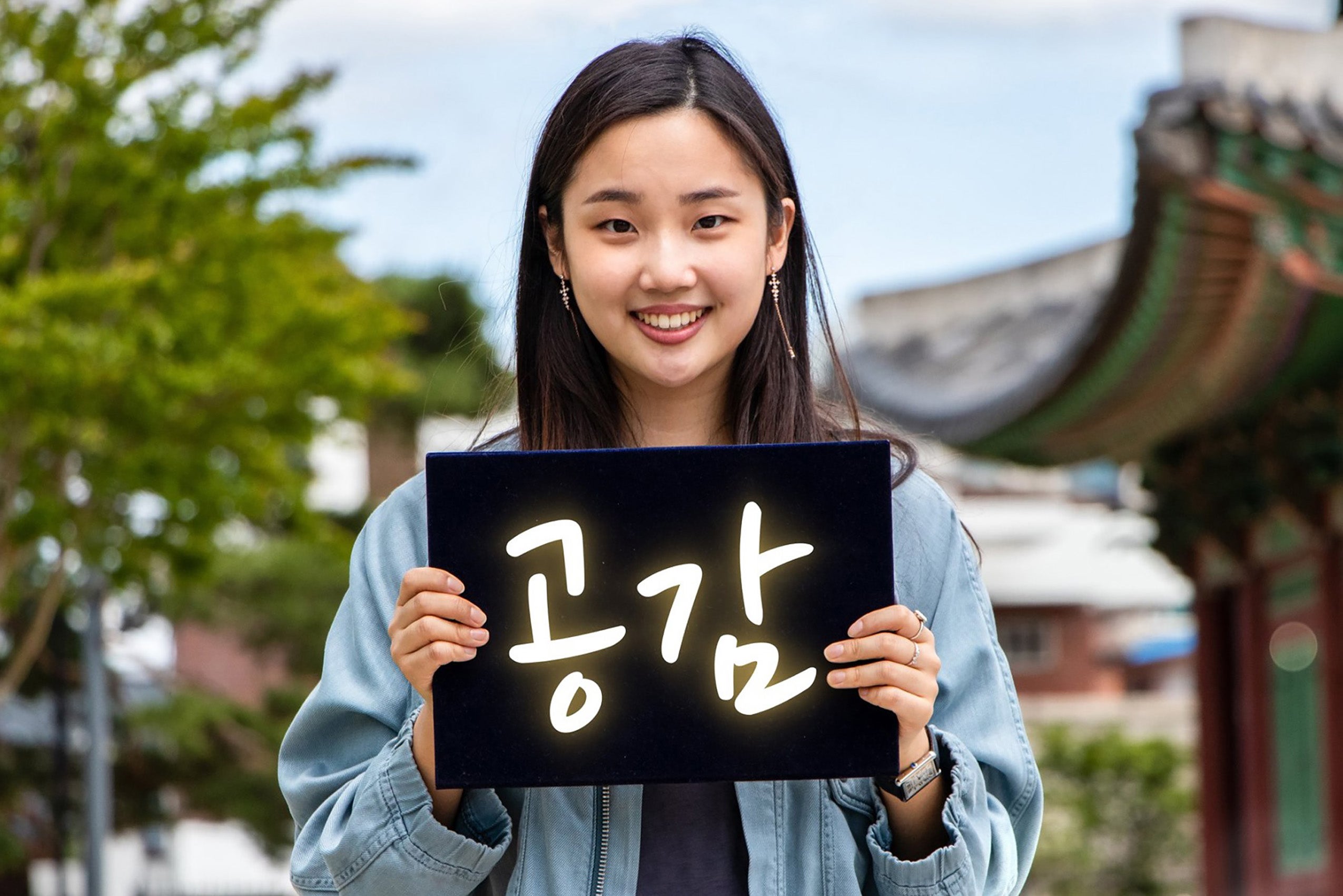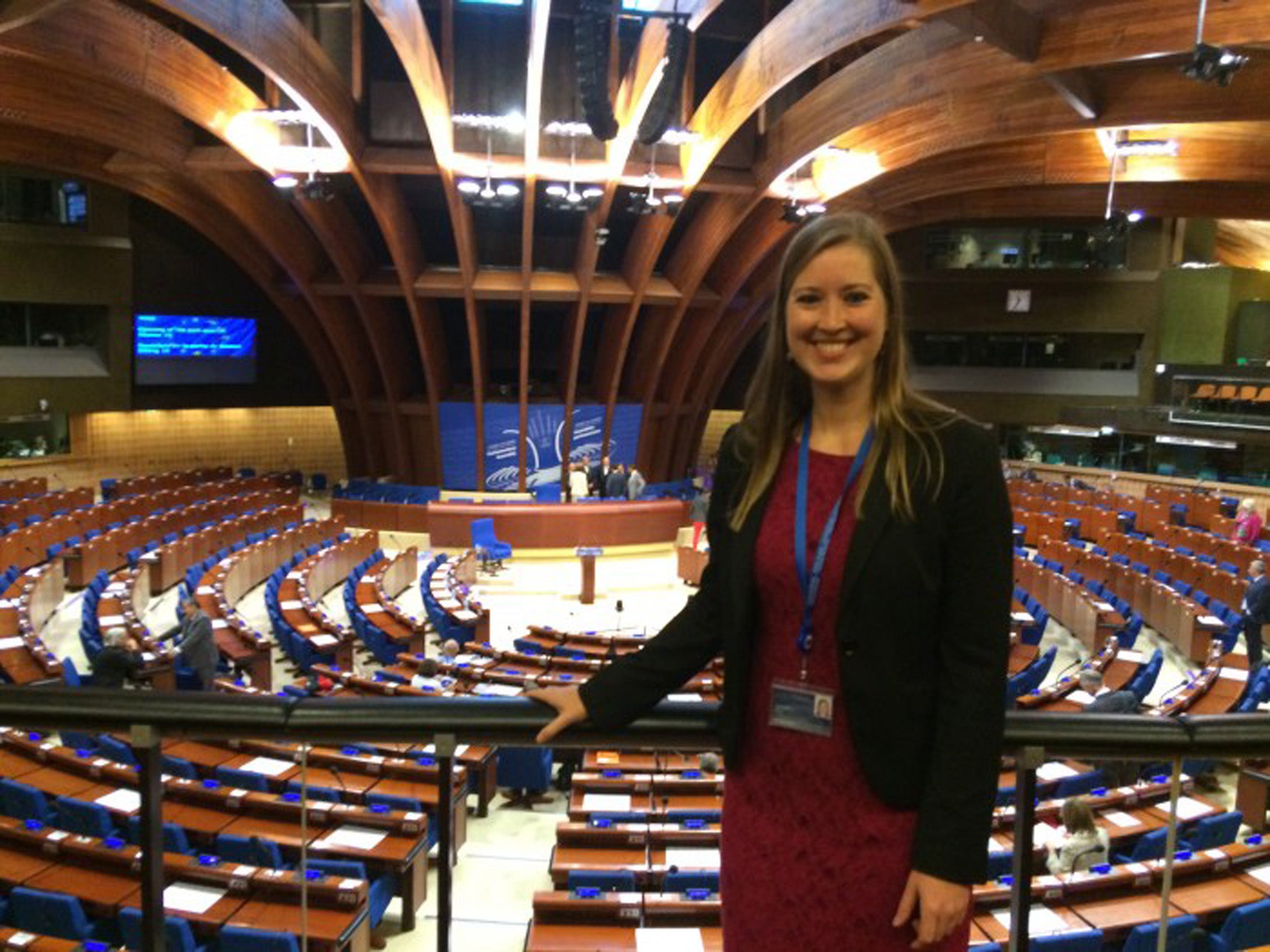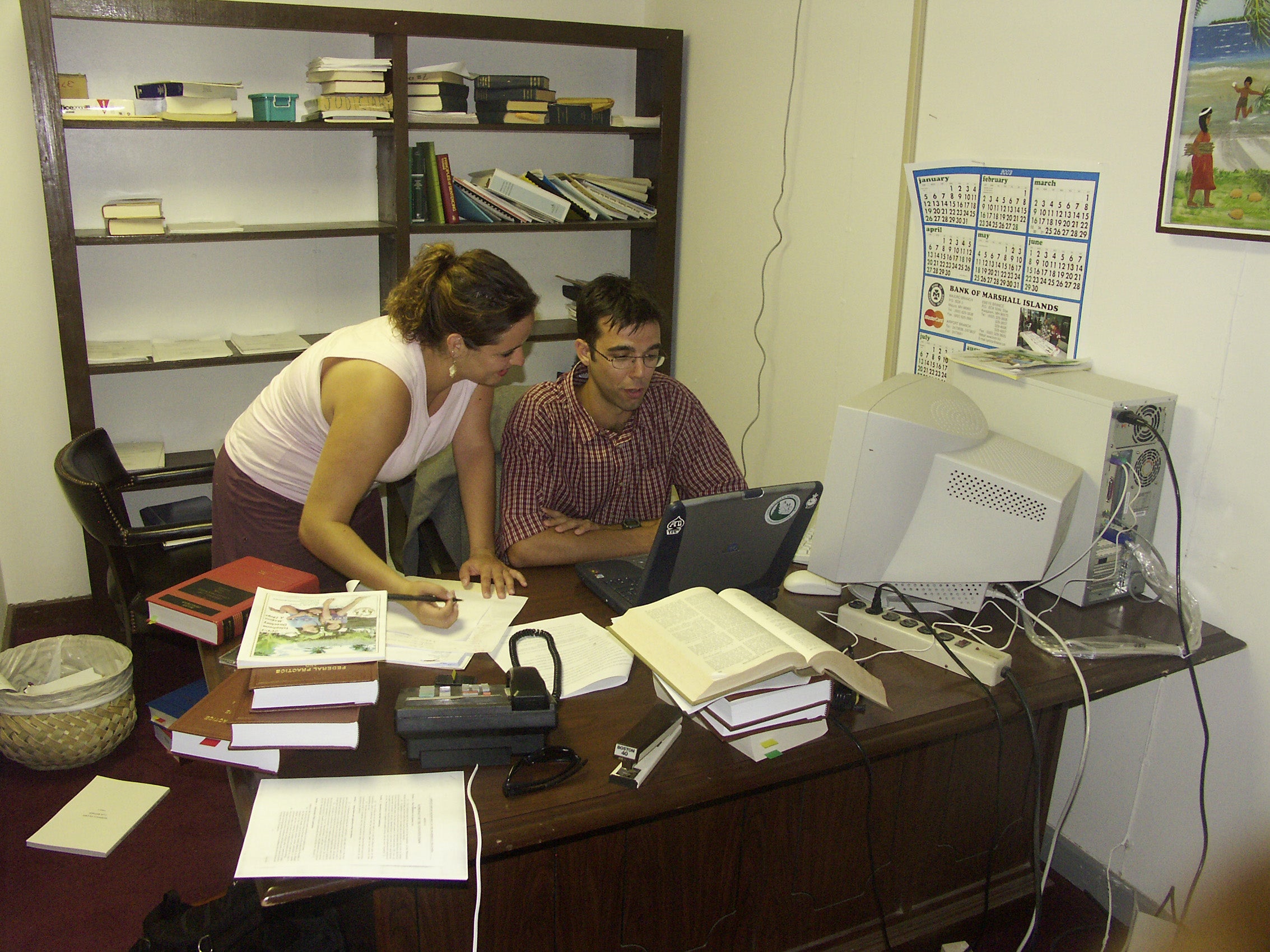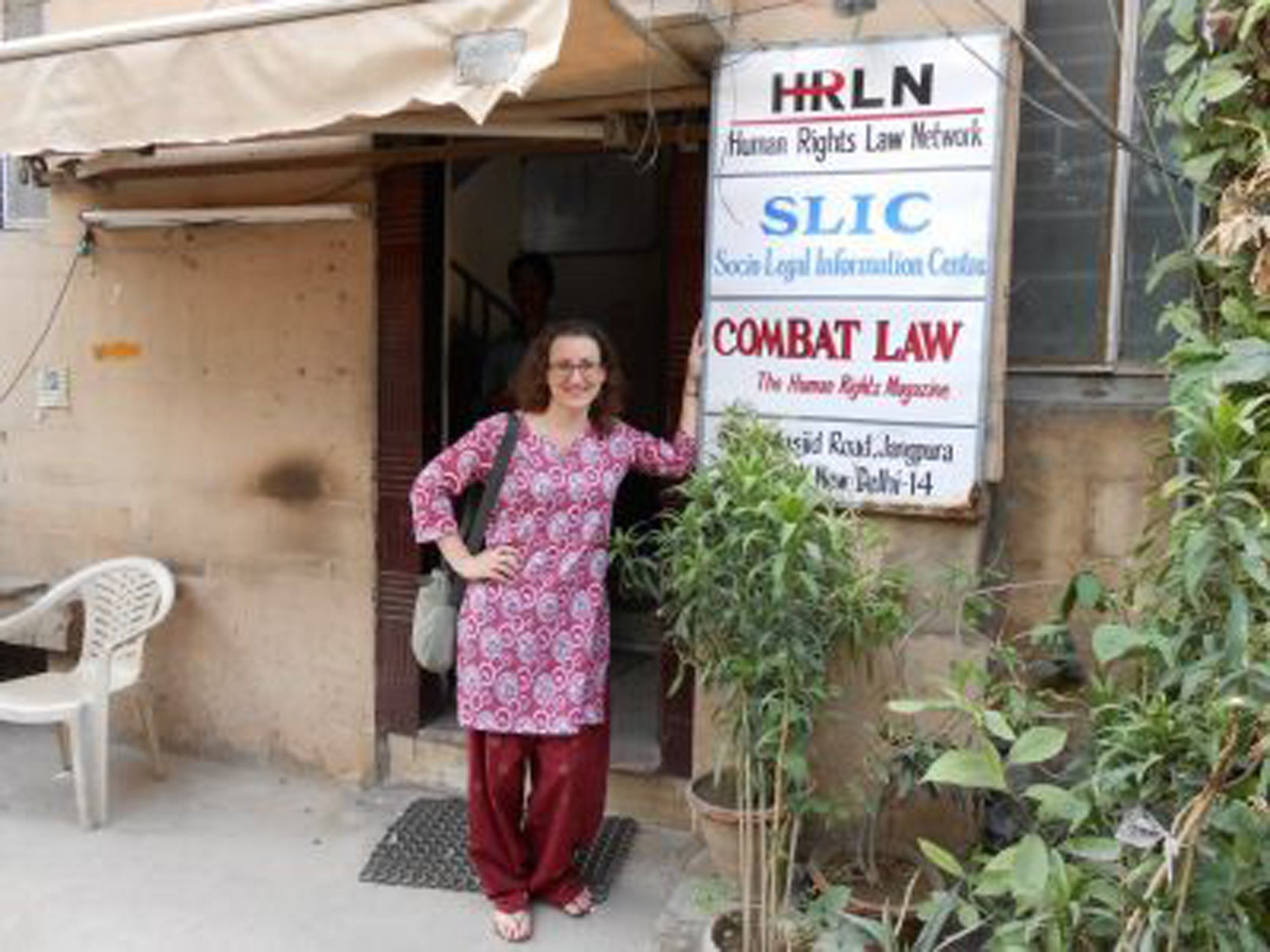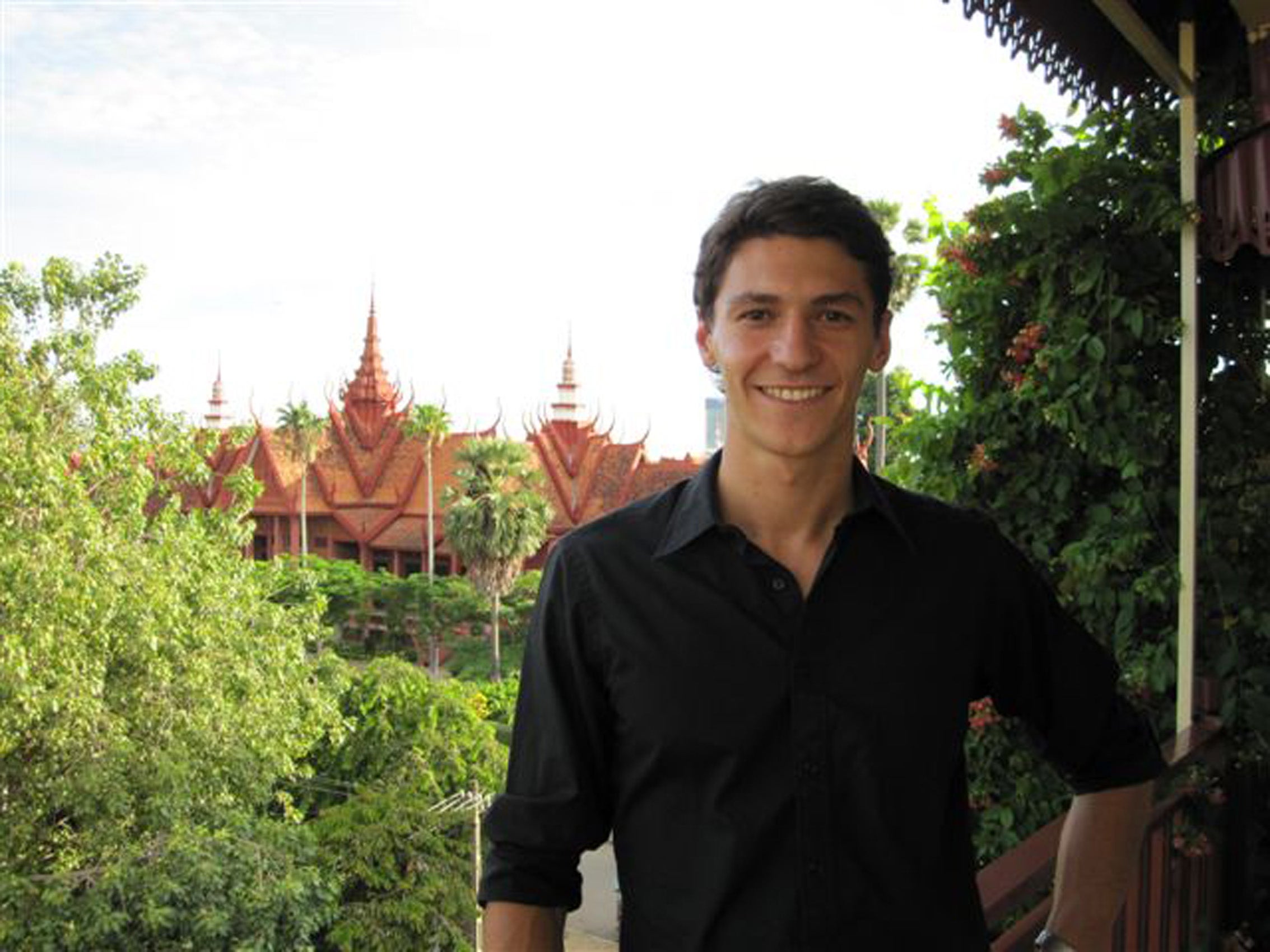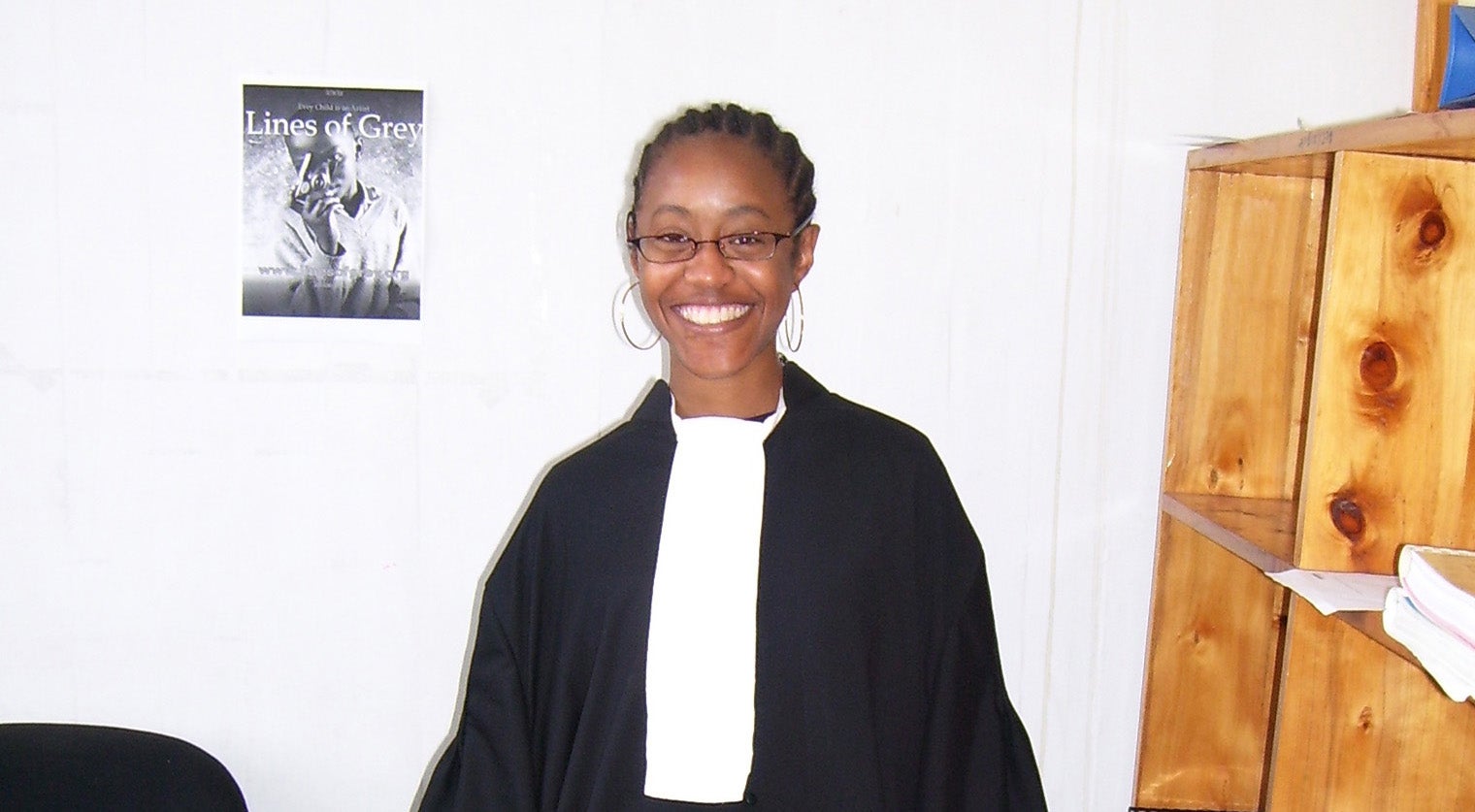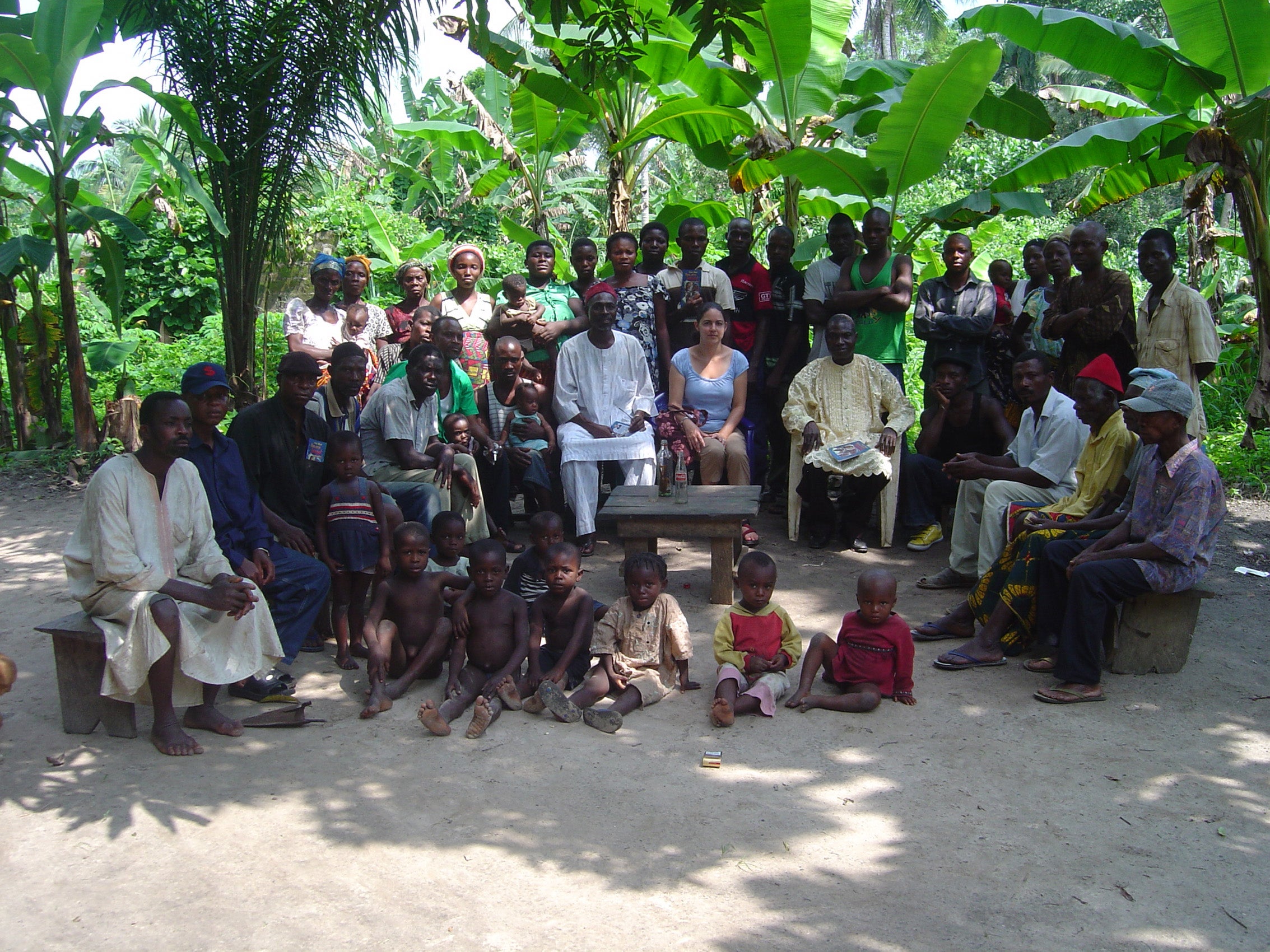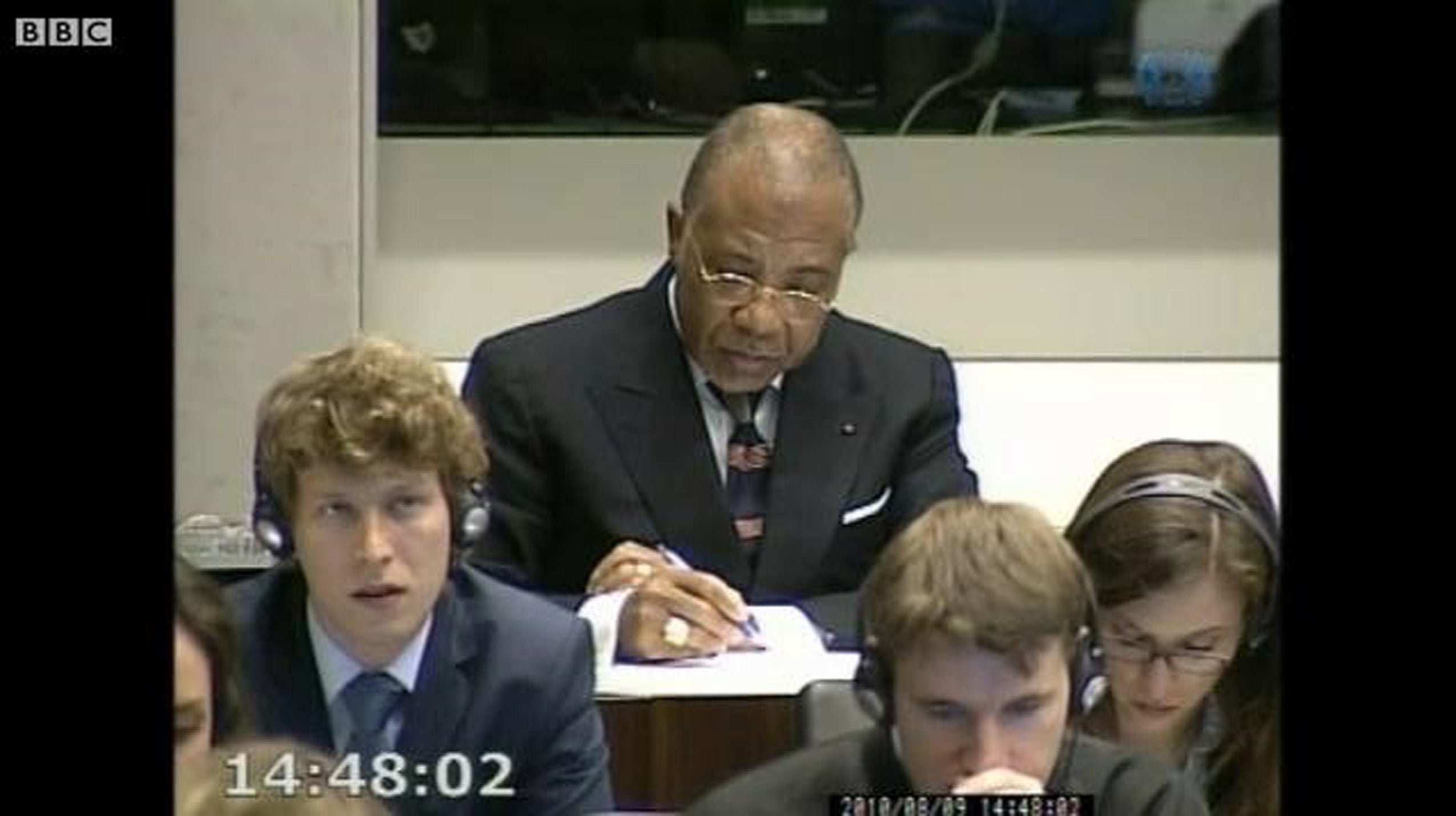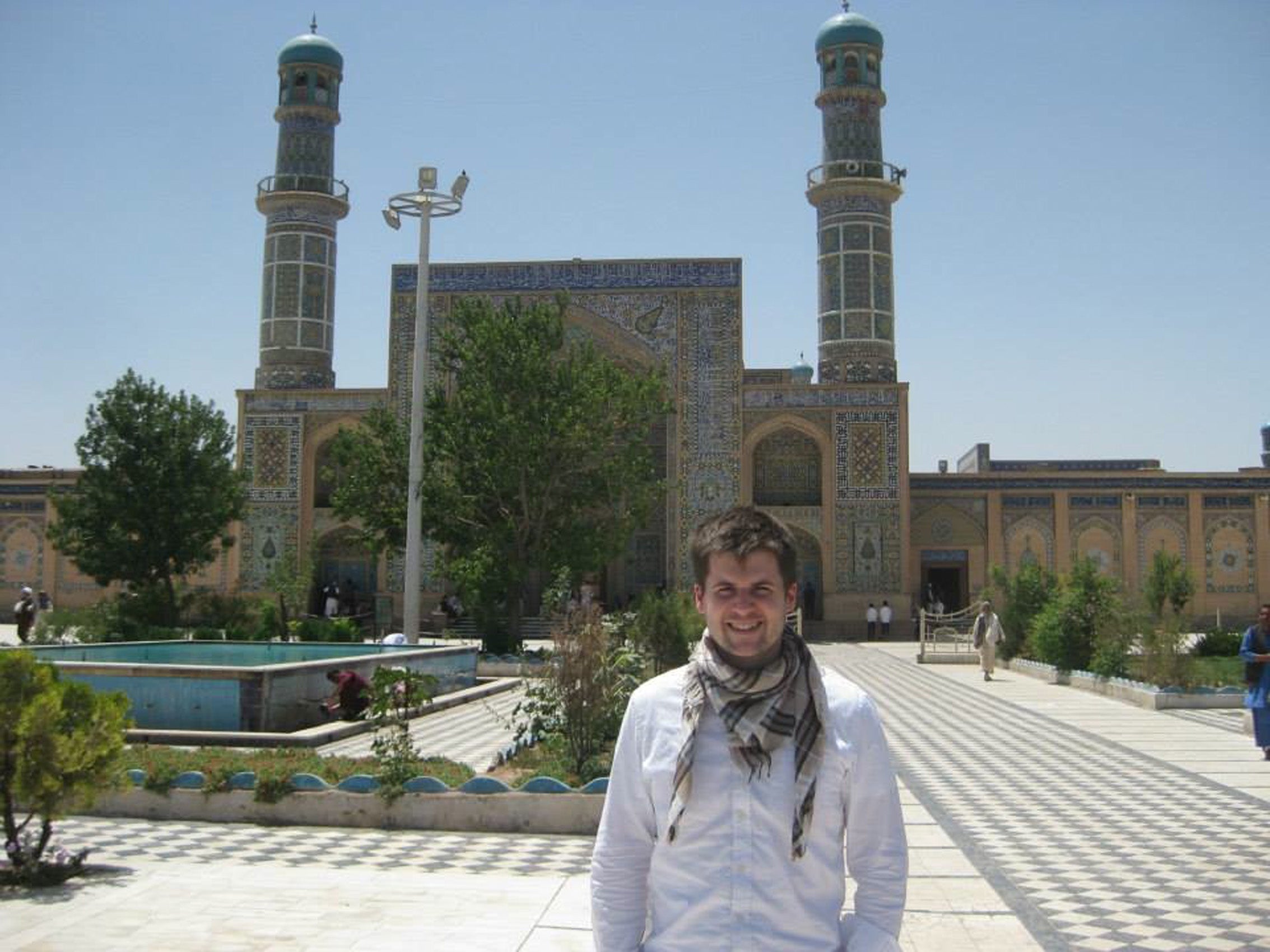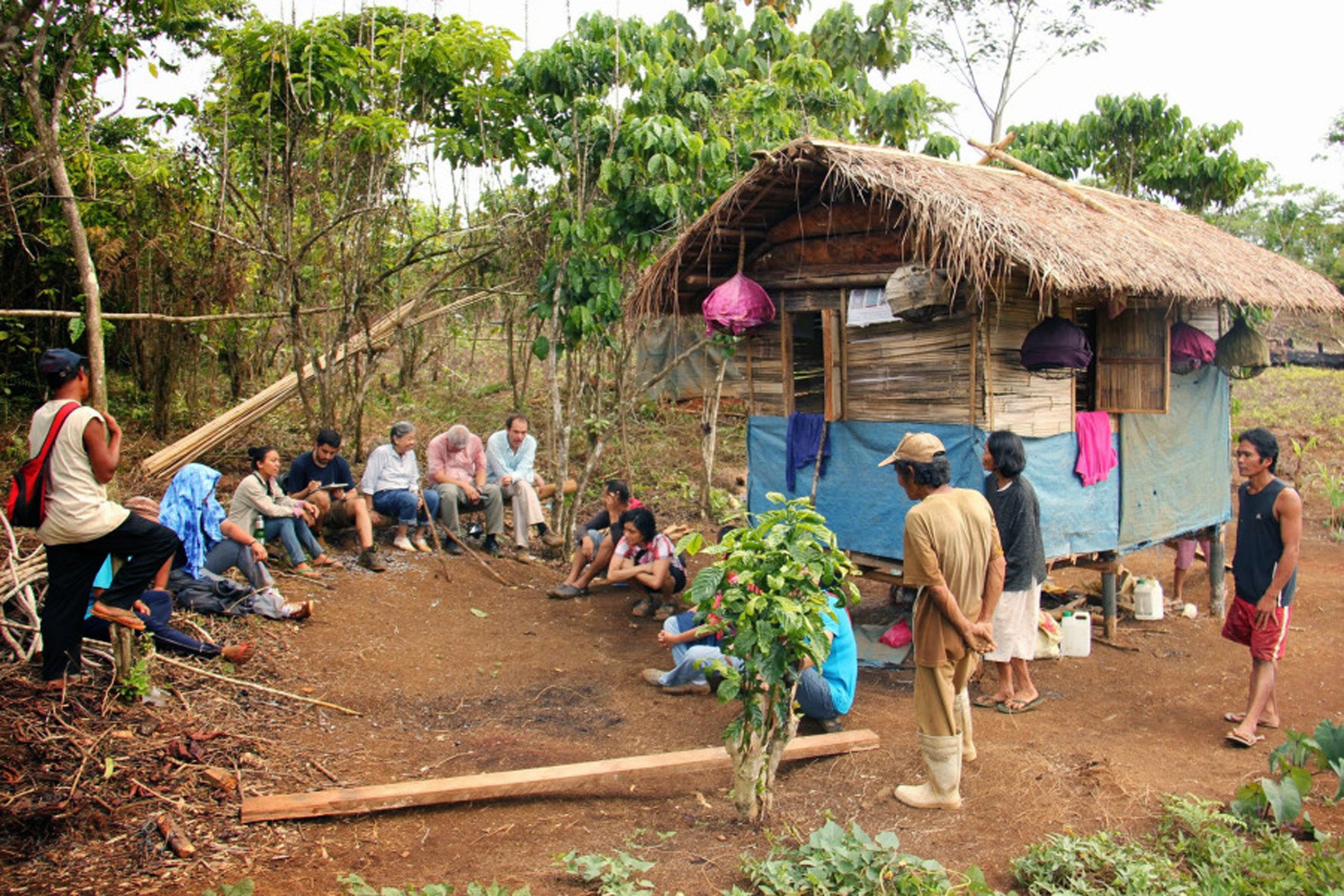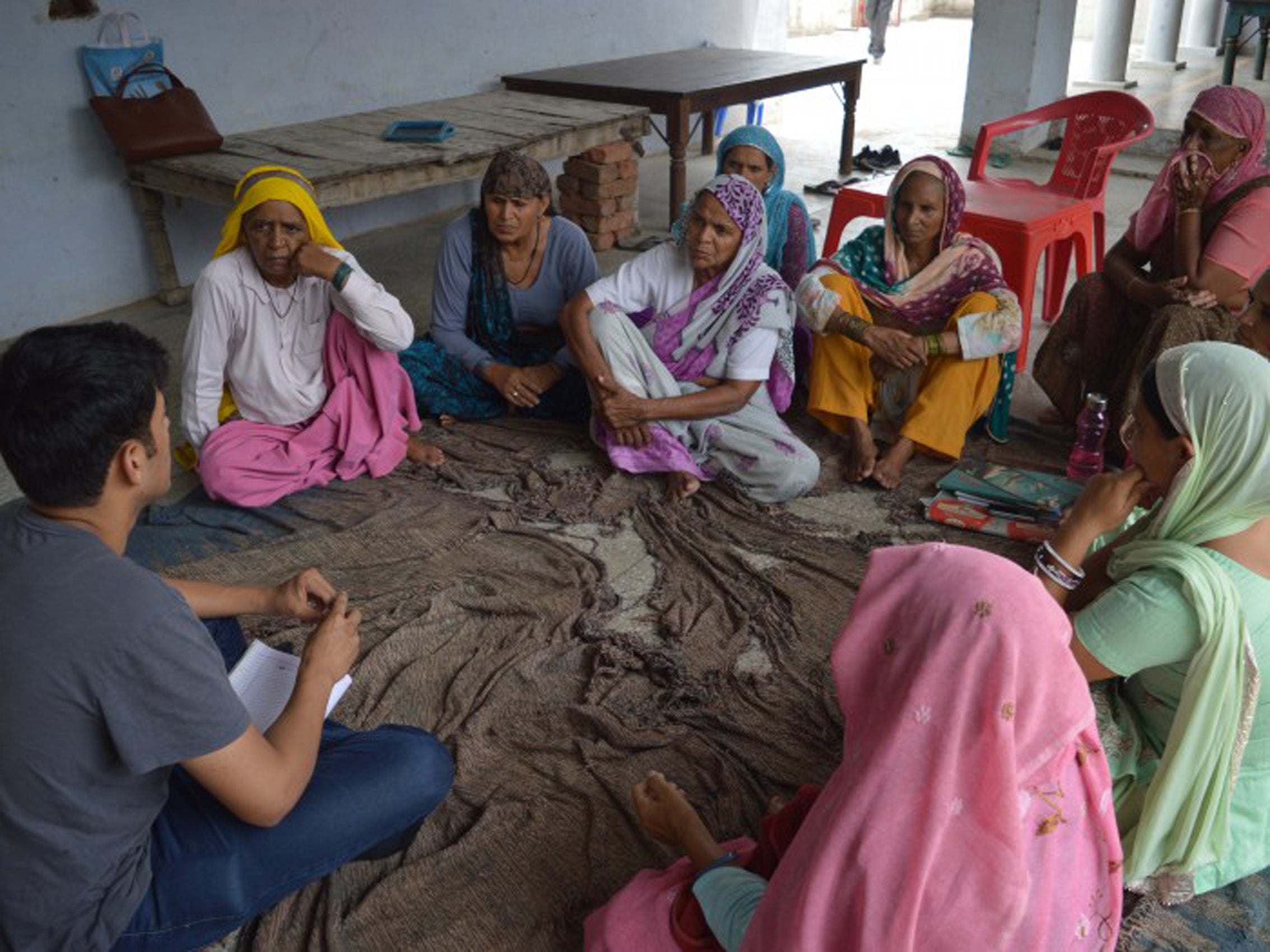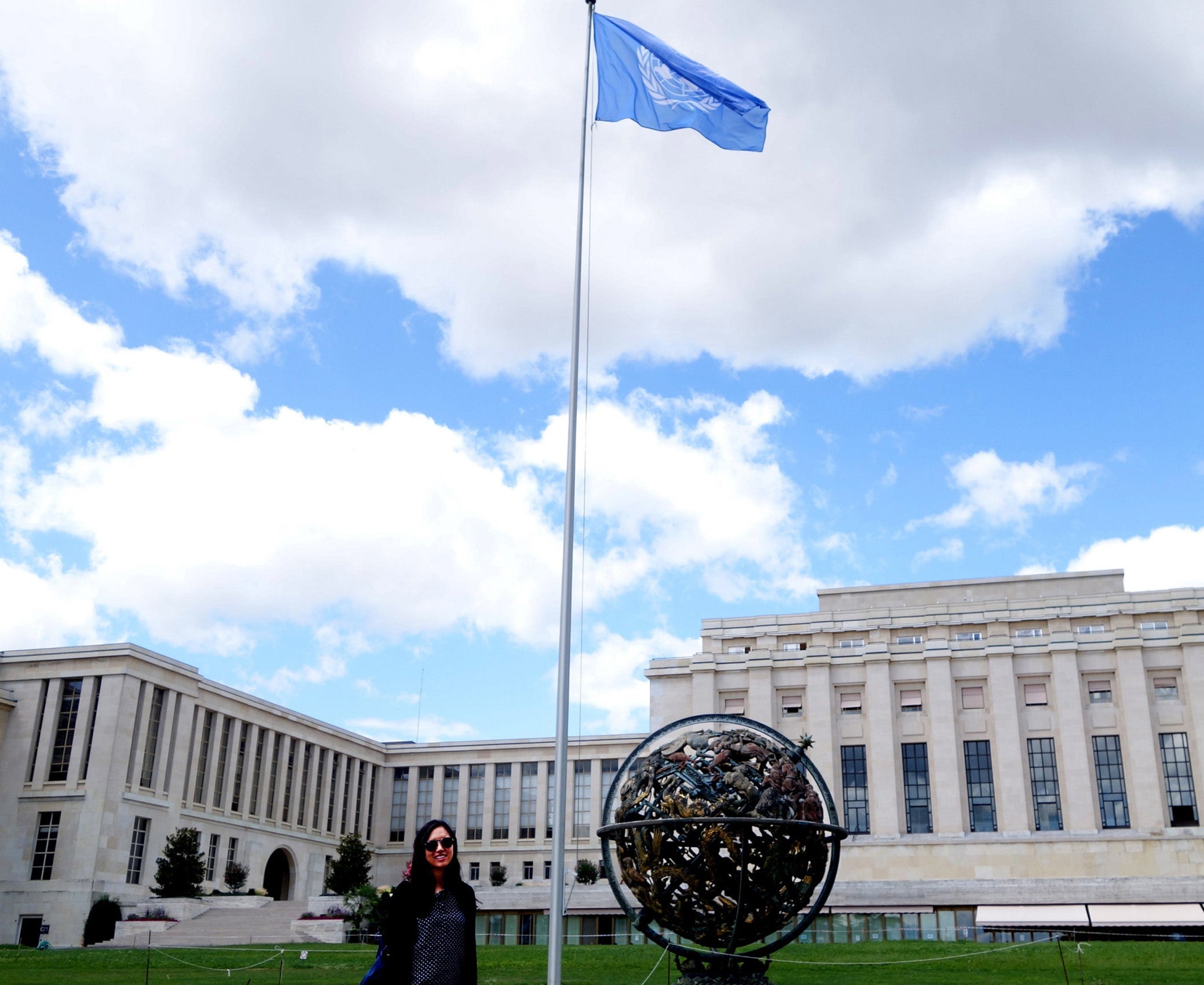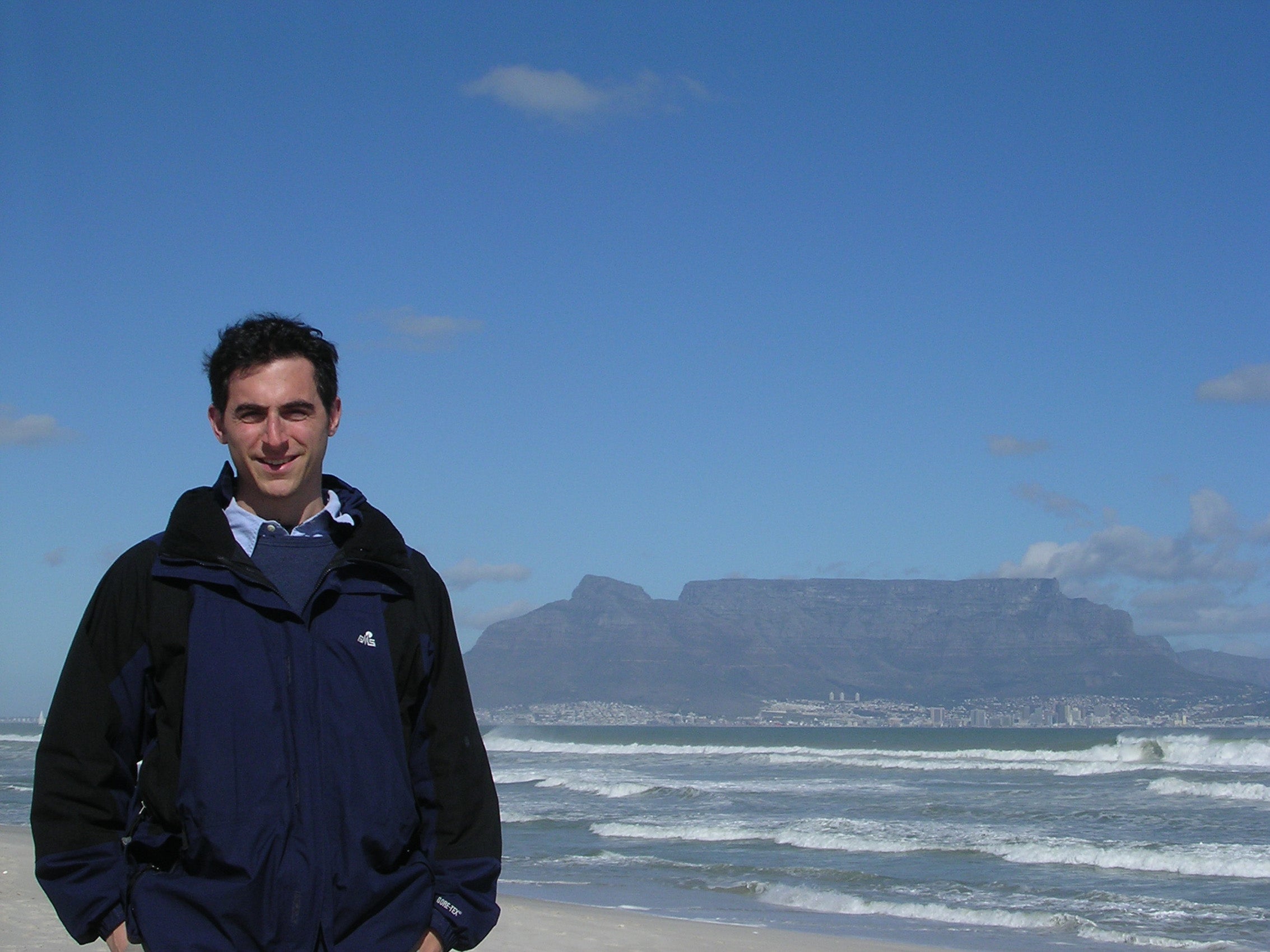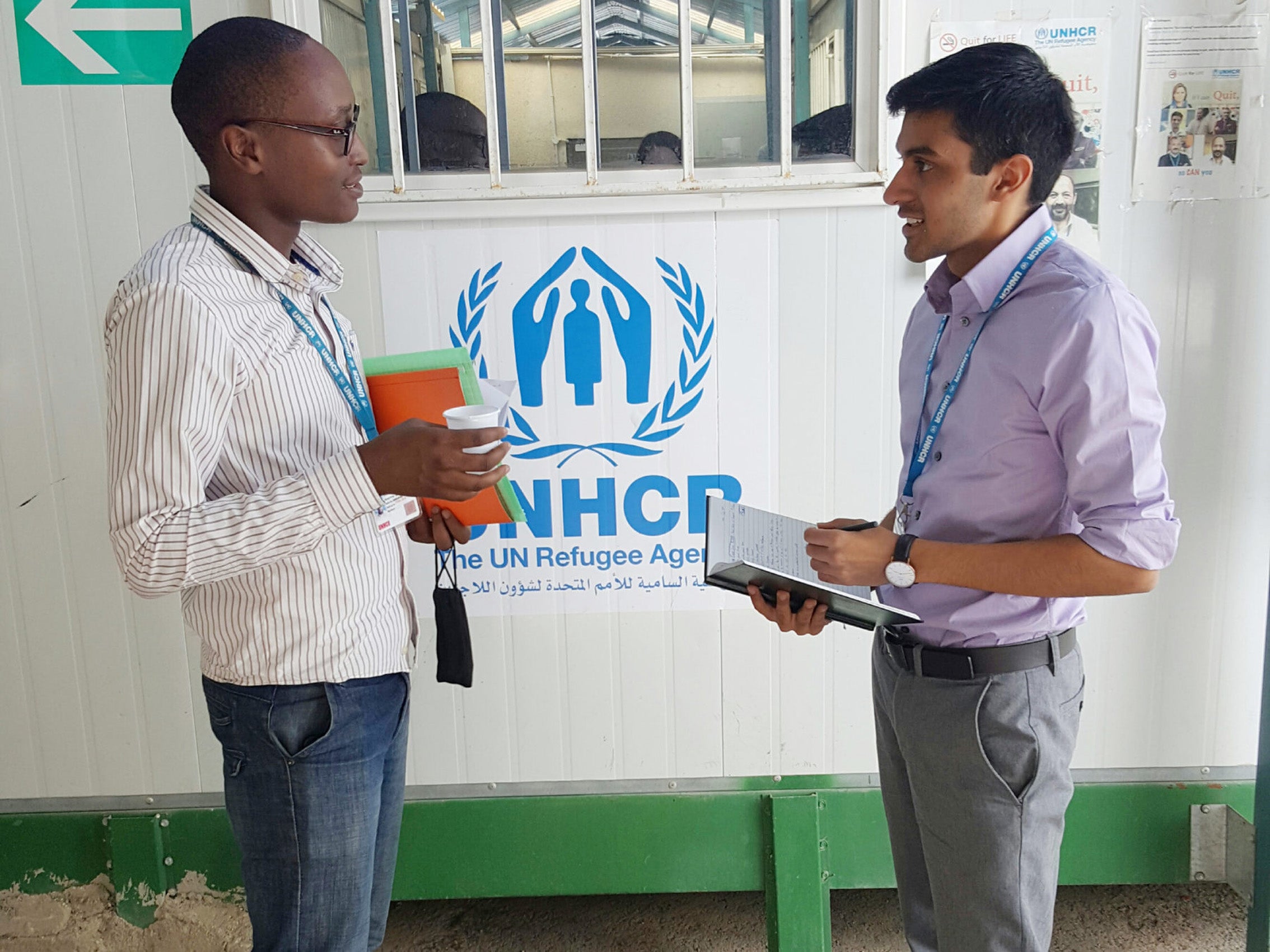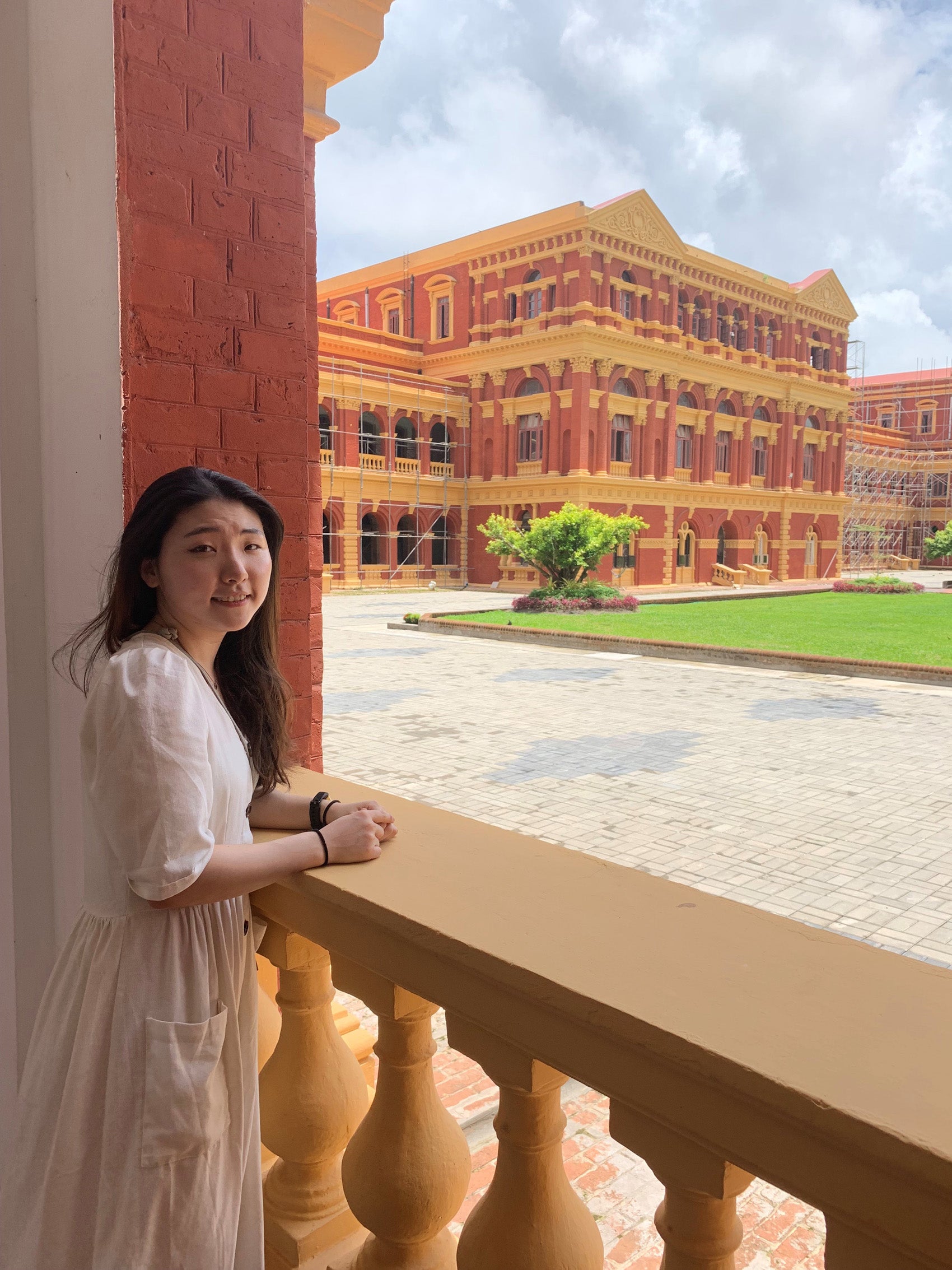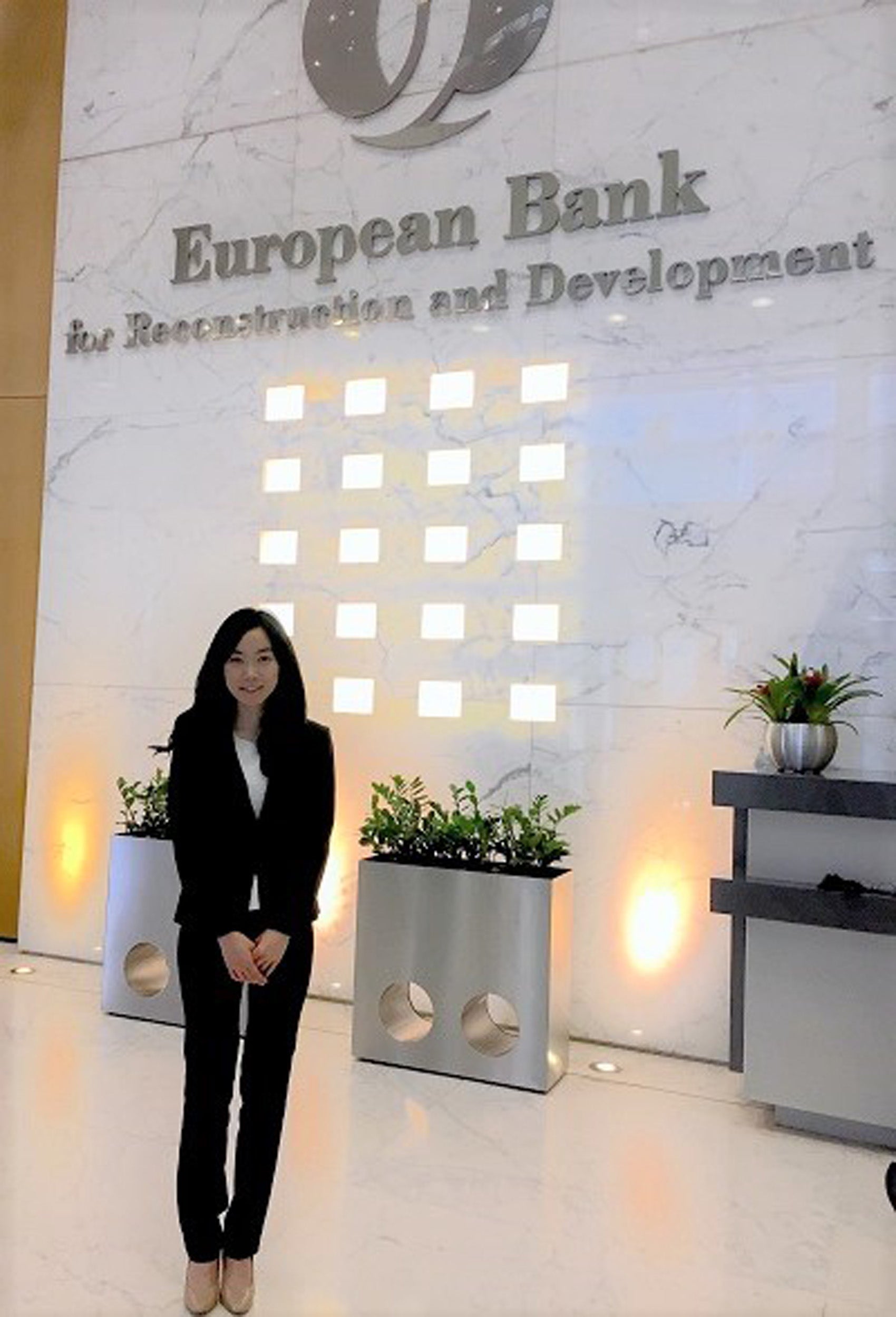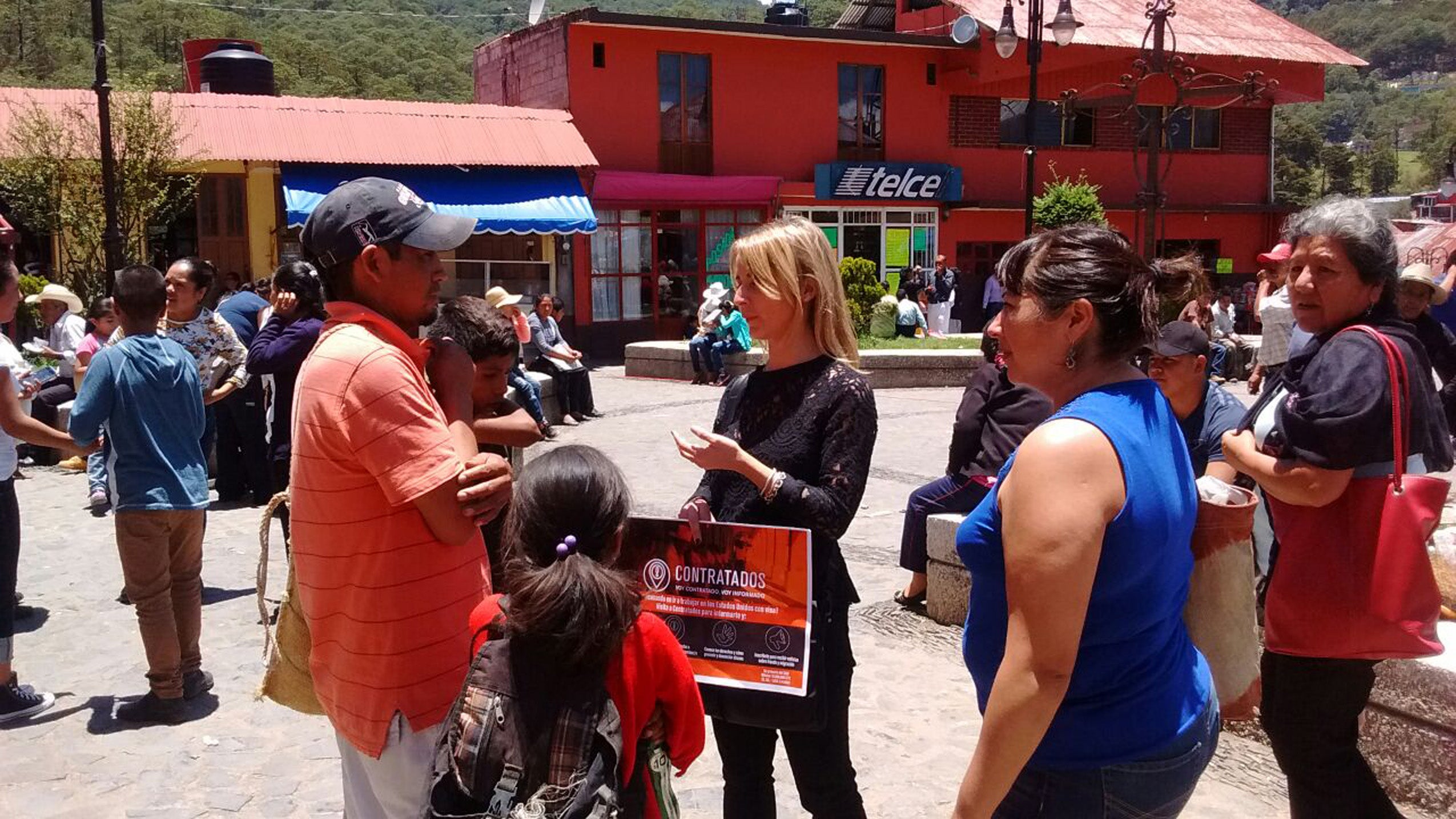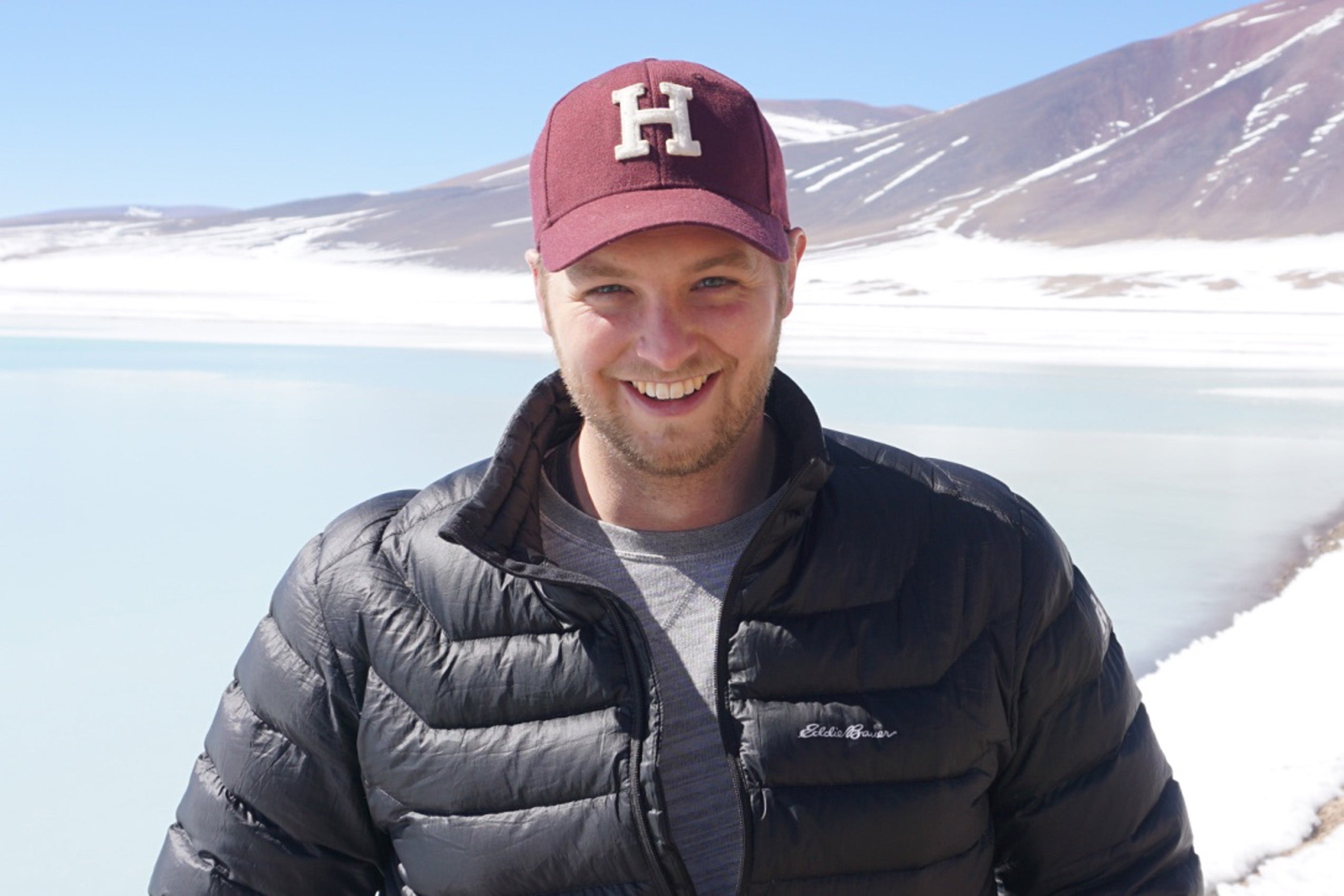Inspiring. Challenging. Stimulating. Rewarding. Transformative. Whether they’re from members of the first cohort, working abroad in the summer of 2001, or the most recent participants, navigating remote placements due to COVID-19, impressions like these from Chayes International Public Service Fellows have resonated over the past 20 years.
Every summer since 2001, Chayes Fellows have worked with international organizations, governments, and NGOs around the world on issues of an international scope or relevant to countries in transition, “doing extraordinary work that often helps shape their careers,” notes William Alford ’77, Harvard Law’s co-vice dean for the Graduate Program and International Legal Studies.
Over the first two decades, 435 Chayes Fellows, working in 80 countries and jurisdictions, have engaged in projects that explore an impressive range of subjects and encompass many different facets of legal work. For a few examples among many, one Chayes Fellow drafted a proposal to the Croatian government on the implementation of an article of the Convention on the Rights of Persons with Disabilities. In Brazil, another Fellow participated in strategic planning sessions with environmental groups and labor unions involved in negotiations with a multinational mining company. Working in China with a multilateral investment bank, a third Chayes Fellow prepared a legal note for the bank’s general counsel about the allocation of powers between the institution’s president and its board of directors. And another Fellow conducted research for litigation involving access to antiretroviral treatment for pre-trial detainees in Malawi, looking at precedents in other countries, international law, and domestic constitutional issues. While Fellows’ work occurs over a single summer, often its effect on a policy or a legal system is considerably more lasting.
The oversight and support that the program provides helps to ensure that these summer placements are substantive, engaging, and beneficial for both the students and the organizations they work with. The Chayes Fellowship can be a particularly valuable opportunity for students in their 1L summer, whether they are delving further into the interests that brought them to law school or taking their first look at international conventions or the legal system and processes of another country. Even after their summer work, the Fellows remain connected to each other and to the Chayes community, sharing camaraderie and practical insights through networking events and career conversations.
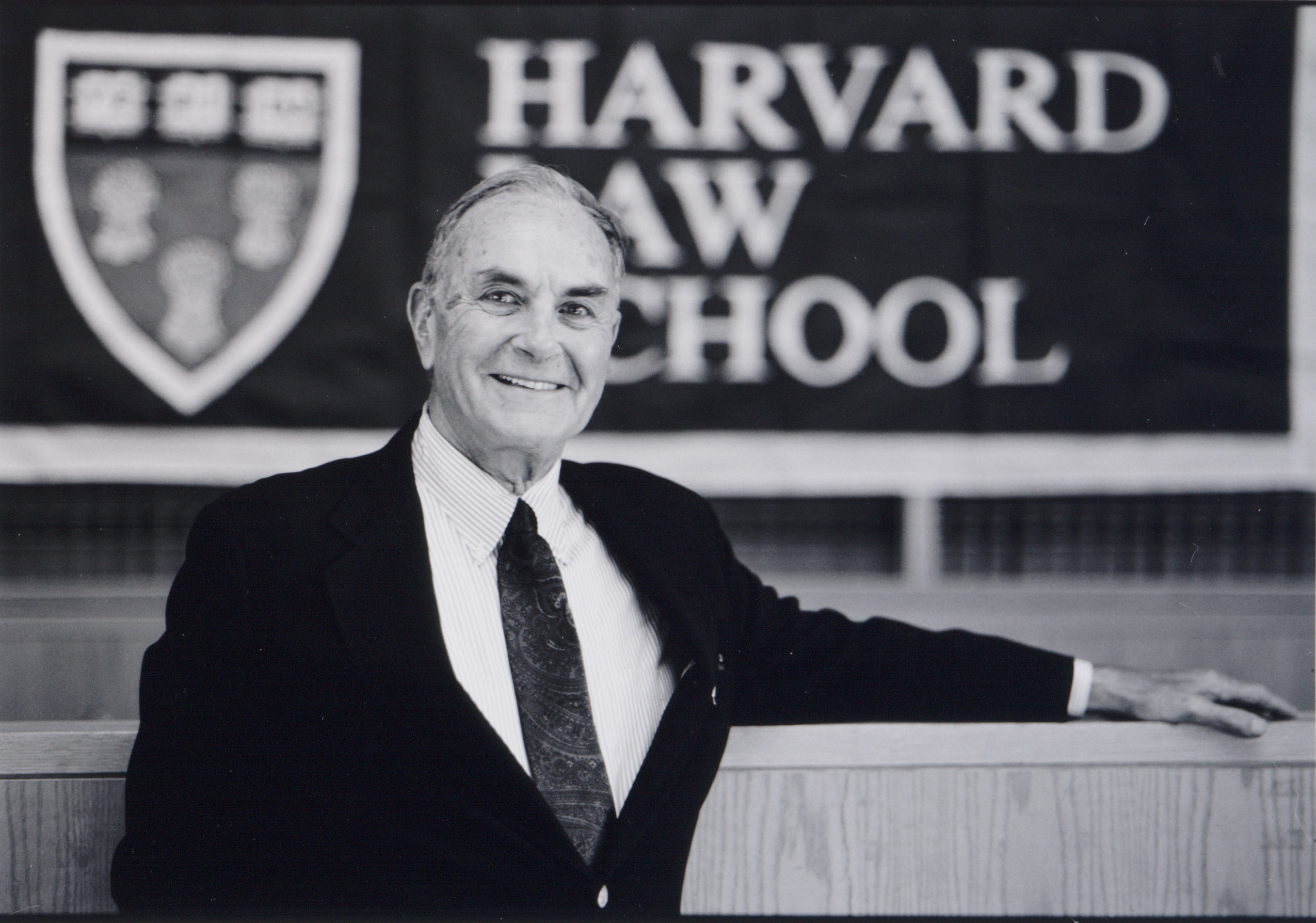
The Chayes International Public Service Fellowships were created in honor of Professor Abram Chayes ’49, who taught at Harvard Law School for more than 40 years. Chayes was a leading authority on international law and throughout his career, as a lawyer, arbitrator, and legal advisor, he took on notable cases arising from military and paramilitary activities in Nicaragua, boundary disputes in Africa, and the genocide in Kosovo, among many others. Chayes was a “gregarious, engaging human being” and a law teacher who “was deeply committed to nurturing students and took particular delight in creating opportunities for students with international interests to flourish,” Alford recalls. Among his other efforts, Chayes encouraged faculty members interested in researching and teaching international and comparative law, created new courses in the field, and was instrumental in launching an earlier fellowship, funded by the Ford Foundation, to foster students pursuing careers in international law.
Antonia Chayes, Abram Chayes’ wife, co-author, and a professor of practice of international politics and law at The Fletcher School at Tufts University, has been an ardent supporter of the Fellowship and the students who participate in it, regularly welcoming them for dinners in her Cambridge home to share their aspirations and accomplishments. “Abe was an intellectual explorer who pursued new frontiers in international law; he would have loved this,” she says. In their summer work, the Fellows “make a real contribution, but at the same time what they learn in the field changes the way they look at the law when they come back.”
When they look back on their experiences, from decades ago or more recently, Chayes Fellows consistently note that they developed new skills and interests, were enriched by new and broader perspectives, and in many cases, found opportunities to pursue different and rewarding career paths — all clear evidence that the program’s impact is both far-reaching and enduring.
The newest cohort of Chayes Fellows has just been announced. This summer, ten students will work with organizations based in nine countries.
***
Chayes Fellows share photos from their time abroad
Reflections from Chayes Fellows
Adam Raviv ’03
Chayes Fellow, 2001: Office of the High Representative, Bosnia
In the summer of 2001, I had the great fortune to be part of the first class of Chayes Fellows, which sent me to the Office of the High Representative (OHR) in Sarajevo. This was several years after the end of the Bosnian civil war and upon arrival, I was told never to step off the hard pavement when walking around the city, to avoid setting off any of the thousands of land mines still buried in the ground. That summer I lived in an apartment building that, like much of Sarajevo, still had visible damage from shelling during the war. Working in OHR’s economic department, I learned a great deal, very fast, about the unique political aftermath of the war. My experience as a Chayes Fellow inspired my first law review article, on the economic effects of the post-Dayton political organization of the country. I also explored much of Bosnia and the surrounding region and met amazing locals and colleagues from around the world. In the many years since, I have practiced, taught, and written on international law. I am still grateful for the opportunity offered by the Chayes Fellowship, which I remember with great clarity and fondness.
Michelle Viegas ’05
Chayes Fellow, 2003: Project ATLATL, Mexico
The Chayes Fellowship was my introduction to all that HLS had to offer to help me develop a legal career in international law. It immediately provided a network during my 1L year to connect with classmates who had similar interests. At the same time, in my 1L elective course, “Addressing Issues of Corruption in Latin America,” I was analyzing cases in the classroom that I had heard about while living in Argentina prior to attending law school. Then, as a Chayes Fellow, working on a USAID-funded anti-corruption project in Mexico City, I researched current issues and legislation relating to corruption and transparency in Mexico and participated in the initial stages of the formation of a national anti-corruption NGO. During that summer, I gained exposure to one of the first of many Latin American cities that I would later travel to during my career. This immersion helped me see firsthand the structural issues that can contribute to the concepts of low- and high-equilibrium corruption systems that we studied in the classroom.
My career since graduating from HLS has been focused on development in Latin America. The opportunity and support provided by the Chayes Fellowship to gain on-the-ground experience in my geographic region of interest helped pave the way.
Emily Broad Leib ’08
Chayes Fellow, 2006: Khmer Institute of Democracy, Cambodia
My placement organization was a local NGO which worked with the UN to raise awareness and community understanding about the Khmer Rouge Tribunal (now referred to as the Extraordinary Chambers in the Courts of Cambodia). I’ve taken some of the things I learned forward in my work ever since then, such as the importance of effectively communicating legal concepts to non-lawyers, and connecting these issues with people’s everyday lives.
After law school, I worked on public health and community development issues in the Mississippi Delta, using a lot of the same skills that I had practiced in my work with communities in Cambodia. I learned about food system issues, and of course I eventually started the Food Law and Policy Clinic at HLS. Everything I’ve done has been grounded in my human rights training and in thinking about what it means to be a lawyer working hand-in-hand with community partners.
We’re all so connected. In working with local communities, U.S.-trained lawyers must be good listeners, but we can bring good ideas and insights, and in turn we can discover from other countries what we could do better in terms of our policies here in the U.S. In my clinic, we have just launched a project analyzing and comparing laws about food donation across countries, and we’re already learning a lot from best practices in other countries. When I did my Chayes summer, it was already extremely relevant to not only understand our domestic legal system but also to examine the nexus with international and comparative law, and I think it’s even more vital to legal training today.
Rachel Mazzarella ’15
Chayes Fellow, 2013: Human Rights Law Network, India
My summer as a Chayes Fellow helped me to expand my horizons into international human rights advocacy after nearly a decade working for the U.S. federal government. Working for an NGO, especially an international one, proved to be eye-opening. I researched domestic implementation of international law, drafted public interest litigation on behalf of indigent prisoners and trafficking victims, and organized human rights training workshops to support local attorneys.
This time spent navigating an unfamiliar legal system afforded me a comparative perspective that would later encourage me to approach legal issues more creatively. I felt a renewed appreciation for the dedication of individuals who choose to work in the human rights field despite many challenges, and gained an invaluable understanding of the many forms that advocacy can take.
After a few twists and turns along my path back to a career in international law, I am now serving as an Associate Trial Lawyer in the Office of the Prosecutor at the International Criminal Court. My summer as a Chayes Fellow prepared me to survive and thrive in this high profile, multicultural, and intellectually demanding environment. As a result of my early opportunity to work within a different legal system, and connect with a network of like-minded individuals at Harvard, I have become a considerably more competent and caring international lawyer.
Kristopher Yue ’16
Chayes Fellow, 2014: International Criminal Tribunal for the former Yugoslavia, The Netherlands
My summer experience at the Tribunal was an exceptional launching pad for my eventual career in public international law. I completed my first internship at the Office of the Prosecutor’s (OTP) Trial Division during the trial of Radovan Karadžić in 2014, drafting briefs and analyzing evidence of mass crimes committed in the context of the Bosnian war. The next summer in 2015, I returned for a second internship at the OTP Appeals Division, where I helped draft appellate motions and a position paper on prosecution of sexual and gender-based violence crimes. While at the ICTY, I formed fruitful relationships with mentors and peers from around the world, which allowed me to successfully transition back to international criminal law later in my career, after three years with a private law firm in Washington D.C., representing international organizations, government ministers, and other individuals in investment treaty arbitration and international criminal extradition cases.
Currently, I serve as a United Nations legal consultant at the ECCC Khmer Rouge Tribunal. I am responsible for advising the ECCC Pre-Trial Chamber’s judges and drafting the Chamber’s judgments, including the decisions concerning whether the final Khmer Rouge genocide prosecutions may proceed to trial. I am very grateful to the Chayes Fellowship for instilling a sense of international public service so early in my legal career.
Hayley Evans ’19
Chayes Fellow, 2017: Rights Watch (UK), United Kingdom
This London-based NGO initially focused on the Troubles in Northern Ireland, but expanded its mandate after the Iraq War to cover human rights and UK national security writ large. As a Chayes Fellow, I not only deepened my interest in international humanitarian law, transitional justice, and related fields, but also found a network of like-minded individuals in the other Chayes Fellows back at HLS. Based on my newfound knowledge, I began to write for the Lawfare blog on issues of UK law and security and to do research for the HLS Program on International Law and Armed Conflict. My time at the organization also inspired a piece in the Harvard International Law Journal’s online publication on the extraterritorial application of human rights.
My summer as a Chayes Fellow had a massive impact on my life and where I am today, both personally and professionally. I will be the maid of honor this year at the wedding of a friend who I met that summer in London. I am currently back in Europe, working on issues of humanitarian and human rights law in Afghanistan at the Max Planck Foundation for International Peace and the Rule of Law. Working within the framework of different legal systems and towards issues of justice, peace, and accountability have always been part of my legal journey, and I owe much of this to that initial summer as a Chayes Fellow.
Gina Starfield ’22
Chayes Fellow, 2020: Al Otro Lado, Mexico
Al Otro Lado serves indigent deportees, migrants, asylum seekers and refugees in Mexico and California. I had originally hoped to be in Tijuana for the summer, to be at the border and in a Spanish-speaking country so that I could improve my Spanish skills and witness firsthand the many abuses occurring at the border. When COVID-19 erupted, I had to shift to remote work, but I still had an incredibly rewarding experience. I met with clients over WhatsApp, at the beginning with an interpreter and later alone as I gained more confidence in Spanish. The team at Al Otro Lado guided me on building a rapport with my clients and were on hand to answer legal questions or provide solutions in moments of crisis. I worked directly with clients to draft asylum applications, asylum declarations, and motions for bond, and on several other projects as well, including drafting public comments and conducting country conditions research. Throughout the summer, I developed more skills in interviewing and working with clients exposed to trauma, and improved my legal research and writing and policy work. I also gained a stronger ability to apply the law to the facts of a case and develop compelling overarching case theory.
As an aspiring U.S. immigration and refugee lawyer, this summer was critical to my career path. After learning from migrants and witnessing their lived experience in Central America, albeit remotely, I am even more confident in my desire to work in this area of law.
Related Reading
Chayes Fellows go global to see the law in action (Harvard Law Today, September 2005)
In humanity’s lost and found (Harvard Law Bulletin, Fall 2006)
How they spent summer (Harvard Gazette, September 2011)
Brett Dakin on his career trajectory and experiences abroad before, during and after HLS (Harvard Law Today, June 2016)
An advocate for children, Michael Jung ’18 has taken a wide view (Harvard Law Today, May 2018)
For HLS grads Jonathan Kaufman and Lillian Langford, a 1L summer abroad set careers in motion (Harvard Law Today, June 2018)
